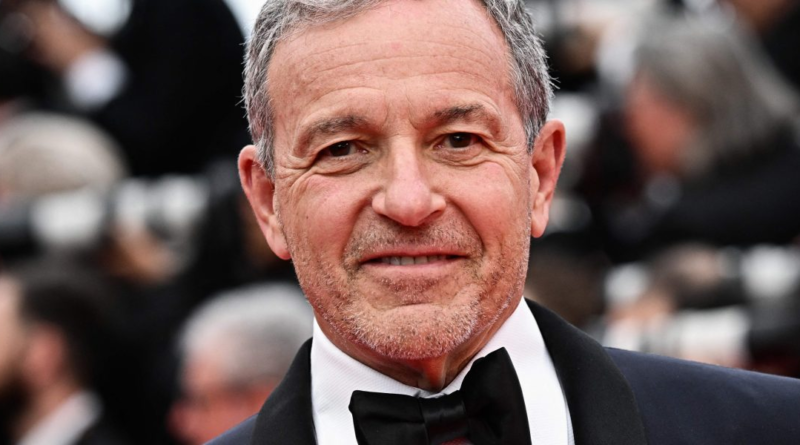Bob Iger is pushing Disney to be more dynamic and Wall Street may finally be buying it: 'I'd rather be a disruptor than disrupted'
It seems Disney CEO Bob Iger is tired of playing catch-up when it comes to streaming. He wants his business to lead the conversation, and Wall Street is on board with the plan.
Wednesday was a busy day for Iger, who kicked off the morning with the Walt Disney Company’s Q1 FY24 earnings results. Disney told investors it was on track to meet or exceed its $7.5 billion annualized saving target—to be achieved by the end of the fiscal year—with revenues for the quarter comparable with the prior-year quarter at $23.5 billion.
This figure was marginally lower than the $23.77 billion expected by analysts, but watchers were clearly more compelled by the company’s positive earnings per share (EPS) announcement. Disney said it expects to see EPS increase by a massive 20% compared to 2023—up to $4.60—which was comfortably ahead of analysts’ estimations.
After hours Disney’s share price spiked by more than 6%, climbing to more than $100 a share for the first time since spring last year.
An exuberant Iger—who has spent the past few months fending off proxy fights with activist investor Nelson Peltz—told investors the fortunes of the business were changing at last.
In a release along with the earnings call, Iger said: “Our strong performance this past quarter demonstrates we have turned the corner and entered a new era for our company, focused on fortifying ESPN for the future, building streaming into a profitable growth business, reinvigorating our film studios, and turbocharging growth in our parks and experiences.”
Iger, who is currently in his second tenure in the top job at the entertainment behemoth, then appeared on CNBC where he fielded questions about a once-unimaginable new service “bundling” sports assets from Disney subsidiary ESPN, Fox Corporate and Warner Bros Discovery.
In the announcement of the new venture on Feb. 6, Disney added the three entities will each own a third of the platform with equal board representation—much as was done with the entertainment streamer Hulu when it launched—working alongside an independent management team.
The new joint venture is set to go live later in 2024 and will be available via a new app. Disney added that subscribers to the latest platform will also have the option to “bundle” the product with Disney+, Hulu and Max.
More streamers?
The formation of a new brand out of established platforms has raised questions about whether consumers will be turned off by yet more streaming options and costs.
Iger said the brand had made the decision to team up with Fox and Warner Bros. Discovery in order to make their content as accessible as possible to consumers who didn’t want to spread their cash across a raft of providers: “This is a big step… to serve the sports fan that has not signed up for the multi-channel, linear TV, or that maybe was disenfranchised and didn’t want it.
“We’ve watched for years the decline of the linear bundle on cable and satellite and we’ve been preparing for a world where that business is not as strong as it used to be.”
Disney’s preparations for this brave new world have consisted of launching Disney+—which will soon be home to Taylor Swift’s Eras Tour concert film—and investing in its own content. On top of this it also assumed majority ownership of streaming service Hulu with the purchase of 21st Century Fox in 2019.
“All of these things have prepared for us to pivot as well, as the world changes as the world is disrupted,” Iger said in the interview on Feb. 8. “By the way, I’d rather be a disruptor than to be disrupted.”
Disney did not immediately respond to Fortune’s request for comment.
Catching Netflix
Despite the uptick in Disney’s share price, 2024 will still mark a tough year for the business.
In its earnings call the company said it intends to reach combined profitability across its streaming platforms by Q4 of the 2024 fiscal year, with Q1 entertainment direct-to-consumer operating losses reducing by $300 million compared to the prior year.
Despite being some way off profitability, Iger outlined Disney’s model is still in its relative infancy. “Netflix had an over 10-year head start on us,” he said. “We launched Disney streaming just over four years ago. It’s still a nascent business in many respects, very successful when you look at the number of global subs that we signed up right away and then obviously since then.”
Iger also noted aspects of Netflix’s model—from its controversial crackdown on password sharing to its global content—were not only aspirations but is something Disney is “working toward in terms of delivering,” Iger said.
“You don’t snap your fingers and get there,” Iger added. “I’m not suggesting we’re patient about it. We have got a lot of work to do, some of it takes time. We’re going to turn that business into a business that we’re proud of in terms of margins—we know a lot more about it and how to do that than any outsider is going to tell us or educate us about.”



